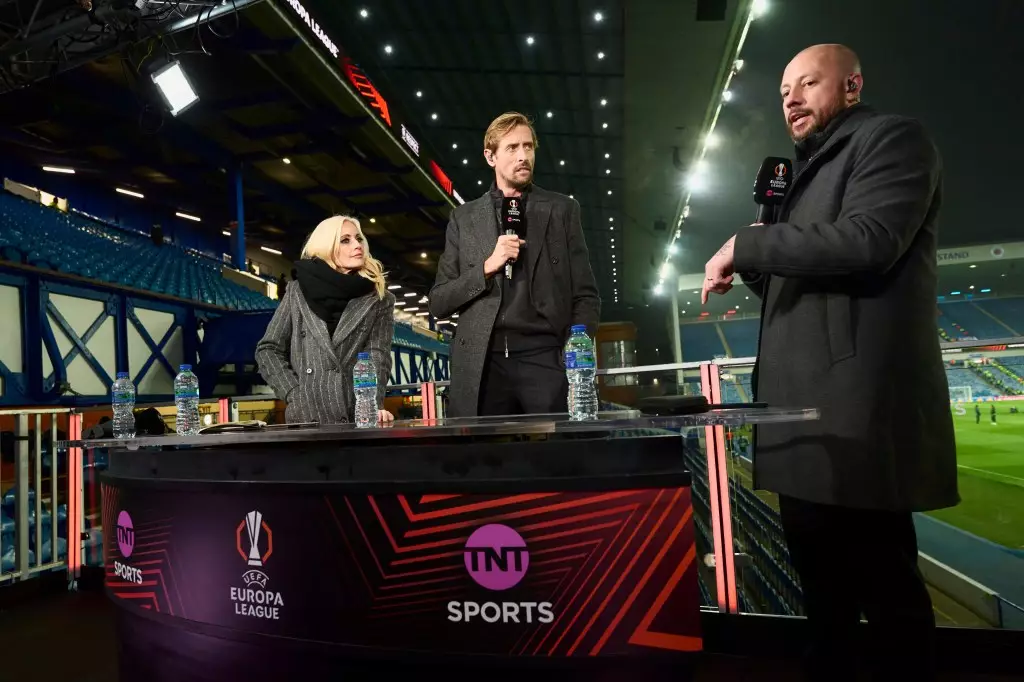The landscape of sports broadcasting in the UK is poised to undergo a significant transformation with the impending disappearance of the beloved channel Eurosport from television screens across the nation. As Warner Bros. Discovery (WBD) restructures its sports portfolio, the programs and live events that fans have associated with Eurosport for over three decades will transition into the TNT brand, a joint venture between WBD and BT Group. This shift is not merely a rebranding; it represents a new chapter in how sports are presented to British audiences, as well as an evolution of consumer expectations in the digital age.
Eurosport has been a staple in sports broadcasting since it launched in the UK 35 years ago. Known for its diverse range of sports coverage—including cycling, tennis, winter sports, and more—Eurosport cultivated a loyal fanbase that appreciated its comprehensive programming. The network provided unique insights and a platform for lesser-known sports, enriching the sporting culture in Britain. However, as viewer habits change and the digital realm expands, even long-standing institutions like Eurosport must adapt or risk becoming obsolete.
The decision to retire the Eurosport brand in the UK aligns with broader trends impacting traditional television. Audiences are increasingly gravitating toward multi-sport platforms that consolidate viewing experiences. The move to the TNT channels marks WBD’s strategic decision to streamline sports offerings into a singular destination, thereby enhancing the viewing experience for fans.
The transition to TNT Sports is not merely a rebranding, but a comprehensive overhaul intended to modernize the sports viewing experience. Armed with a robust rights portfolio that includes marquee fixtures from the English Premier League and the UEFA Champions League, TNT Sports aims to deliver a more interconnected and engaging experience. Scott Young, WBD’s Group SVP for Content, Production & Business Operations in Europe, emphasizes a vision for a “more modern” sports platform that is closely attuned to the desires of today’s fans.
The significance of this shift goes beyond just the surface-level changes in branding. The TNT channels will not only host live events but strategically cross-promote various sports. This live-to-live broadcasting strategy will enable seamless transitions between major sporting events, fostering an immersive experience for viewers. For example, an audience might tune into a Premier League match and transition to watch a stage of a cycling race, facilitated by on-air personalities who can connect the dots in real-time.
In addition to traditional television offerings, the integration of Eurosport content into the Discovery+ streaming platform marks a noteworthy advancement. As consumption patterns shift increasingly towards on-demand and online viewing, Discovery+ stands to benefit immensely from offering a consolidated sports portfolio that includes all sports previously hosted by Eurosport as well as those from the TNT channels. This strategic marriage of live and on-demand content positions WBD as a formidable player in the competitive streaming landscape.
While the decision to phase out Eurosport from UK screens might evoke nostalgia among long-time viewers, it speaks to a critical need for adaptability in the sports broadcasting domain. By leveraging a unified brand and diverse content library, WBD aims to access a wider audience base—one that expects easy access to their favorite sporting events and the flexibility to engage with them on their own terms.
The looming departure of Eurosport from British television signifies both an end and a beginning. The sports broadcasting industry is undergoing a seismic shift driven by changing consumer preferences and technological advancements. In this context, TNT Sports emerges as a bold new solution, promising to deliver an enriched and cohesive sporting experience.
While sentimental feelings may linger for Eurosport’s unique legacy, the future seems brighter for UK sports viewers who can anticipate a modernized platform that embraces the interconnectedness of sports entertainment. As WBD and BT Group forge ahead with this ambitious venture, fans can look forward to not just a rebranding, but a reinvigorated approach to how sports are experienced in the UK. In the end, embracing change is not merely inevitable; it is essential for survival in an increasingly competitive broadcasting arena.
